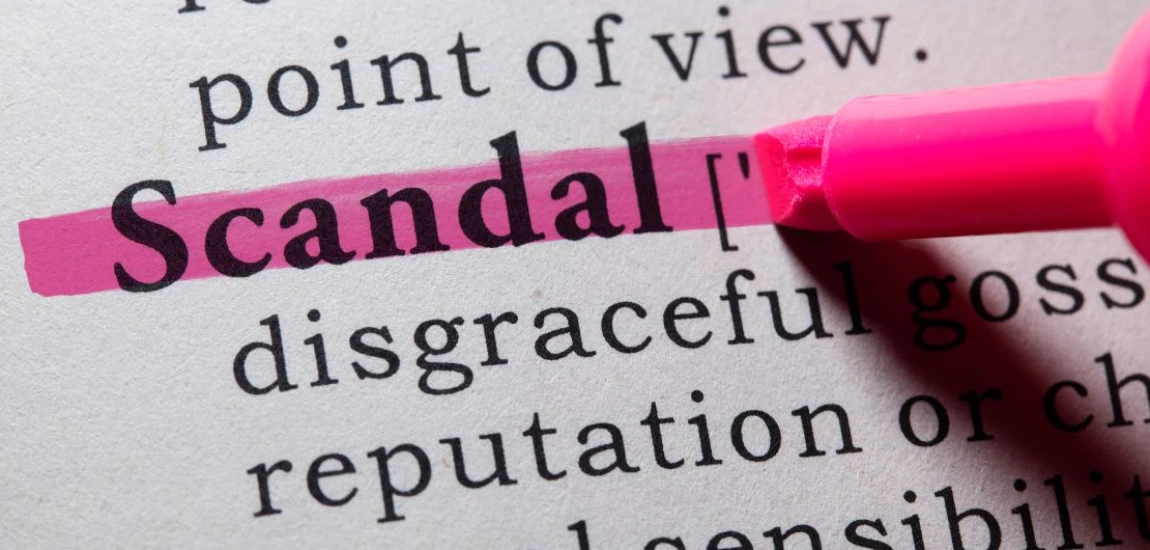When an Album Drops—Then a Scandal Follows: How Fans Navigate Public Drama

In today’s music industry, an album drop is rarely just about the music. The moment a highly anticipated project lands, it becomes a cultural event—trending across platforms, dissected on fan forums, and celebrated in playlists worldwide. But what happens when that same release coincides with a scandal? From social media controversies to leaked personal messages and even legal battles, scandals have become nearly inseparable from the entertainment cycle.
For fans, this presents a unique dilemma: should they celebrate the art or step back because of the artist’s actions? In an era where music consumption is deeply tied to identity, fandom, and online community, the lines aren’t always clear. Unlike the pre-digital era, where news traveled slowly and scandals sometimes faded before they reached the masses, today’s controversies unfold in real time, shaping how albums are received and remembered.
This blog unpacks how fans navigate the tricky space between supporting the music they love and confronting the uncomfortable truths surrounding their favorite artists. From boycotts to nuanced conversations about accountability, the modern fan experience is more complex than ever before.
The Album Release Scandal: A New Kind of Collision
When an album drops alongside—or immediately before—a scandal, the collision can drastically affect its trajectory. Instead of the focus being on the music itself, media outlets and social platforms often shift attention toward the controversy. This doesn’t just impact sales or streaming numbers; it influences how the album is framed within pop culture history.
Take, for example, artists who have faced allegations of misconduct right as their projects launched. Fans might feel conflicted about streaming new tracks, knowing that financial support could indirectly endorse behavior they don’t condone. Meanwhile, the scandal itself often overshadows creative achievements. A groundbreaking body of work can be reduced to footnotes in headlines dominated by drama.
Social media amplifies this effect. Within minutes, hashtags trend, opinion pieces circulate, and fandom communities fracture into factions—those who separate art from artist and those who advocate for accountability through boycotts. Music critics, too, often address scandals directly in their reviews, intertwining the album’s artistic merit with the moral questions at hand.
The result? An album scandal isn’t just a blip in publicity—it fundamentally changes the cultural context of the release. Fans are forced to navigate whether they engage with the music, criticize it, or walk away entirely. And unlike in previous decades, there’s no hiding from the conversation; it dominates the same platforms where fans once gathered to celebrate new releases.

Fan Dilemmas: Loyalty, Morality, and Identity
For fans, scandals create an emotional crossroads. Music isn’t just entertainment—it’s often tied to personal identity, nostalgia, or even healing. When an artist’s behavior clashes with a fan’s values, the decision of whether to continue supporting them becomes deeply personal.
Some fans choose loyalty, focusing on the music itself and separating it from the artist’s actions. They argue that art should exist independently, and that songs can hold meaning even when the creator has faltered. This stance is especially common among long-time fans who’ve built emotional attachments to an artist’s work.
Others, however, see continued support as complicity. They advocate for boycotts, streaming blackouts, or speaking out publicly against artists whose behavior harms others. For them, fandom isn’t just about consumption—it’s about accountability and aligning their entertainment choices with their values.
The middle ground is perhaps the most complicated. Many fans grapple with mixed feelings, acknowledging the artistry while being uncomfortable with the controversy. Some may listen privately but avoid public support. Others may choose to engage with past music but draw a line at future releases, recognizing a shift in their relationship with the artist.
This moral negotiation is intensified by the community-driven nature of modern fandom. Online groups, from Twitter stan accounts to Reddit threads, often pressure individuals to take a stance. Silence or neutrality can be read as endorsement, creating an environment where fans feel they must declare their positions. In many ways, scandals force fandom to become political, blurring the line between personal taste and public responsibility.

The Role of Social Media in Shaping the Narrative
Social media plays a massive role in how scandals unfold during album releases. Platforms like Twitter (X), TikTok, and Instagram serve as both news sources and debate arenas. Within minutes of a controversy breaking, fans are bombarded with viral clips, opinion threads, and memes that shape the collective narrative.
For fans, this immediacy is a double-edged sword. On one hand, social media gives them direct access to information, updates, and the ability to voice their own perspectives. On the other, the constant flood of takes can be overwhelming, making it difficult to separate fact from speculation. Rumors often spread faster than official statements, leaving fans to navigate murky waters of half-truths and narratives amplified by algorithm-driven virality.
The structure of social platforms also intensifies polarization. Hashtags like #Cancel[Artist] or #IStandWith[Artist] emerge, creating opposing camps that pressure fans into choosing sides. Neutrality is rarely an option when fandom conversations are gamified into trending battles. Even those who prefer to disengage from the drama find it difficult, as their feeds are flooded with updates and discourse.
Interestingly, social media can also act as a space for collective healing and accountability. Fans come together to discuss the impact of scandals, share resources, and build solidarity. For younger fans especially, this becomes a crash course in navigating moral responsibility within consumer culture. In some cases, scandals even push fandoms to shift their energy toward supporting other artists, redistributing their passion in healthier ways.
Ultimately, social media doesn’t just report on scandals—it creates the lens through which fans interpret and respond to them. It transforms album release scandals from isolated incidents into global conversations that reshape the way music is consumed.

How Fans Adapt: Strategies for Navigating Scandal-Linked Albums
So, what do fans actually do when faced with an album release scandal? The strategies vary, but several common responses have emerged in recent years:
Selective Listening: Some fans continue listening but avoid streaming on official platforms. They may download the album illegally or use offline files to avoid contributing financially.
Contextual Engagement: Others engage critically, acknowledging the music’s artistry while openly discussing the problems surrounding the artist. This allows them to enjoy the work without ignoring the scandal.
Redirection of Support: Many fans choose to redirect their energy and money toward other artists, particularly those who align more closely with their values. Supporting emerging musicians becomes a way of balancing their withdrawal from scandal-ridden acts.
Boycott and Protest: For fans with strong convictions, boycotts are a clear choice. They avoid streaming, attending concerts, or buying merchandise, sending a message that unethical behavior has consequences.
Compartmentalization: Some fans compartmentalize by continuing to listen privately while distancing themselves publicly. They may still find personal meaning in songs but avoid promoting the artist on social media.
These strategies highlight the adaptability of fandom in the digital age. Rather than a single unified response, fans create individualized approaches that reflect their values, comfort levels, and community expectations. This flexibility is part of what makes fandom resilient—even when public drama complicates the music itself.

The Bigger Picture: What Scandal-Linked Albums Reveal About Culture
Album release scandals aren’t just about individual artists—they reflect broader cultural shifts. The way fans respond reveals how deeply entertainment is tied to identity, morality, and collective values. In many ways, the music industry has become a mirror of society’s debates about accountability, power, and consumption.
For artists, scandals serve as cautionary tales. The old model of relying on “bad publicity” no longer guarantees attention that translates into success. In fact, scandals often overshadow the art, erode trust, and create long-term reputational damage. For record labels and management teams, this means carefully considering how to handle crises without alienating audiences who expect transparency and responsibility.
For fans, the experience reshapes what it means to engage with music. Gone are the days when you could passively enjoy an album without considering the person behind it. Today, listening to music often involves ethical choices, community debates, and critical reflection. This shift is reshaping fandom itself, making it as much about values as it is about vibes.
On a cultural level, scandals highlight the growing demand for accountability in public life. Whether it’s in politics, entertainment, or sports, fans and audiences increasingly expect figures with influence to act responsibly. When they don’t, the backlash isn’t just loud—it’s organized, often reshaping careers and entire industries.
In short, scandal-linked albums are more than just unfortunate coincidences. They represent a cultural turning point where art, ethics, and audience power collide in ways that will shape the future of the music industry.




